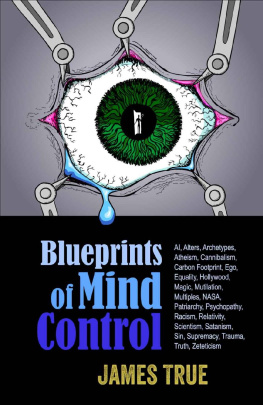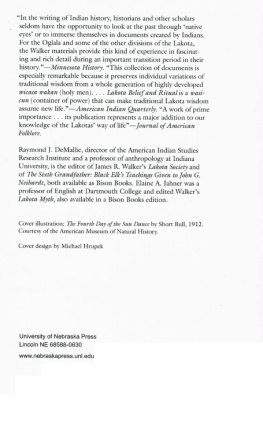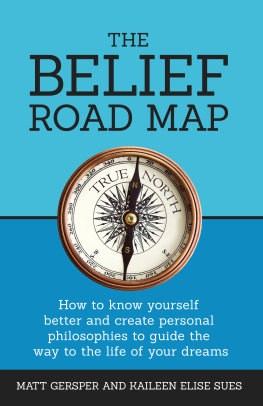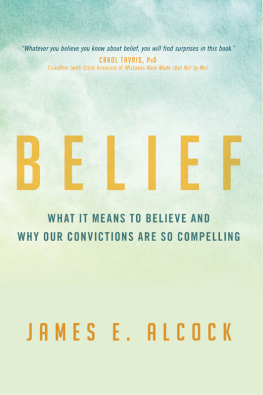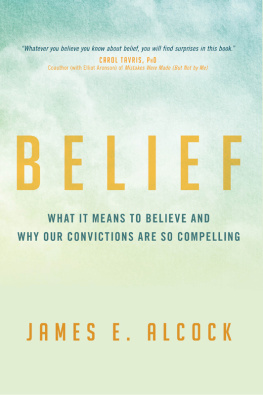Contents
Guide
Dedicated to
John Wayne Anderson
I see him pushing his glasses up his nose now as he's about to speak. He would aim his head sideways like a gangster when he listened. The truth never got away from him. Most days of his life, John was pulling squashed souls out of the grill of the machine. He was dirty, like a good mechanic. He held a confident posture on pine crutches. He never showcased the pain. Suffering was an ingredient for his medicine.
CHAPTER ONE
The Technology of Belief
THERE IS A technology to belief. Ancient ideas have been unplugged and hoarded. We toil to complete the circuit. When a circle is fulfilled, the ground glows. Our shoulders buzz like filaments when someone shares truth. We are swimming in plasma. Our lungs are gills in an ocean.
Belief is the aether endowed by a flock. Our beliefs have been enslaved for centuries. This happens in religion, science, and politics. The power of belief is always mistaken for its costume. We only give credit to its props and choreography.
Its a statistical fact that half of all scientific research will be proven wrong within twenty years. Still, we believe in science. It was shown recently that two-thirds of clinical studies couldnt be duplicated. Still, we give science every benefit of our doubt. We dismiss belief as childish. We coddle science like a pimp. We pretend all legitimacy is found on the surface. But below language there is sound. Below sound, there is intent. Below that, there is a belief technology.
Kabbalah and Enochian magic both tap into belief. These are ancient arts charged from the power of reverence. Tradition is a tangible force in belief. The rarity, age, and complexity of a system yield tremendous torque. One who masters its intricacies draws prana from the energy of awe. Belief is a measurement of electrical confidence. A mother knows she can lift a Buick to save her child, so she does. She speaks no incantation. She follows no ritual. She instantly converts her body into cortisol in a holocaust of sugar. Her sacrifice in the face of her childs death is an economic exchange. She signs an instant contract with the aether.
This book is an appraisal of the technology of belief. There is a powerful science hidden in our life-force. These chapters demonstrate its effects through history and the future.
CHAPTER TWO
Moon's Field Notes
WORDS ARE POOR as a poet. All of our thoughts are slippery fish flopping on the dock. We put our hooks in their gums and pull them out to show each other what we thought. Meaning is a colored koi squiggling through our fingers. We lose its intention pretending to hold oceans in cups. Utterance is a drop in the sea of every thought that ever was. We are neurons on the omnidirectional train tracks of prejudice. God is zero-point back at the station. Our identity is a vector as much as its a pulse. We are surging streams through time and space. If you want to know how God sees you, take a snapshot of every pose your bodys ever held and connect the dots. Make a map of every geo-coordinate youve occupied. What does your time-body resemble in its true form? We are time squiggles. Like three-dimensional ink from a calligraphers pen, our spline tapers, splotches, and zips along a baseline. We are a song of the deep for the highest of places.
The meaning gets lost in translation. We miss each other interpreting our giftwrap. We are squirrels arguing with a tree over the shape of the breeze. Language is confusion masquerading as comprehension. We reward ourselves by telling each other what they should have thought.
When the love of self goes silent, there is apathy. When apathy goes silent, there is love. We are emotional lungs filling and spilling from the tide. We cast God out of the garden and accuse him of banishing us. These charades have perfected the art of victimhood like a firecracker. The apple of truth is a psychedelic flesh. Eves fruit was the ultimate red-pill. Before that first bite, there was no veil. Our lips are still puckering from the tang of moralitys dimension. Our tongues were virgin before the first lie. We held our insides and outsides in a similar esteem.
At sea, the difference between flotsam and jetsam is intent. In maritime law, what we lose at sea is different from what we abandon. We live in a dimension of intent. If flowers were human, theyd find a way to resent the bumblebee. Appreciation is the long stamen in a womb of petals. Morality is invisible to flowers. Morality is real as war to humans. We are seven billion hands clutching a single gold compass.
The moon will never turn from its crop. Its up there waiting for you to hatch. We crack open when we die, and the moon catches our field notes. Every picture we make is placed on the galactic refrigerator. We are solutions rendered in cranial fluid. We secrete sweaty potions that kill us slowly through time. There is so much to reveal in the underworld. But that part is a grand surprise. Anticipation is a thorn under the silky skin of a rose.
You know youre pure when vampires love your juice. They want your body, and you feel alive when hunted. Rabbits beg for the chase by twitching their nose in the bush. Let us speak true of the deeper shade of soul. Underneath the yearning for survival lies a passion for death. How much of yourself do you know? You are naked after a shower lying on your towel. Your hair is wet, and your teeth are dry as you contemplate the swing of a ceiling fan. The shadow grows long before it drowns. The orchid drops its spent sculpture at night when no ones looking.
Are you ready for the underworld? Crawl under your house and see. Feel the cool slippery plastic as you scooch your belly like a snake. Reptiles breach the ground with their undercarriage. Their keels crest the inverted waves of Hades. You will never know thyself till you see your shadow.
CHAPTER THREE
Oracle at Delphi
IN 1400 B.C., a young man named Kamesh, led a trip of a dozen goats along a craggy ridge-line of thick laurel overlooking the Mediterranean. Under a blue sky, they marched on the green fingers of rock spilling their pebbles into a cobalt sea. The crescent bay they just found would soon be sacred ground. Geology split the earth in a jagged scar making access difficult. Kamesh found a flat knoll where his bearded tribe collected fresh grass in their teeth. One of the goats ventured beyond the knoll and Kamesh went to fetch her. In six jumps, the goat claimed a tall chimney of rocks too steep to reach. Leaking cracks of ethylene gas poured from the ground making Kameshs thoughts blurry. He could not coax his beast home. Kamesh, now enthralled by the gas, threw rocks to drive it down. Intoxicated in the grounds sweet aroma, the goat bleated a song of defiance and revelation. Kamesh watched it call forth the Copper God from the Golden Dawn. The goat was summoning Apollo. He would claim these rocks as the temple at Pythos, the site later known as Delphi.
For the next millennium, people pilgrimaged here to commune with the Oracle. The goat was replaced by a young sweet virgin groomed from the local village. She was named the Pythia, voice of the Pythos, the stern lips of Apollo. She became a living archetype of intuition. The Pythia answered questions from pilgrims at the waxing of every moon. Above the entrance of the Oracles temple, it read in Greek, Know thyself. The legend grew as people would come from hundreds of miles for a chance to consult the Oracle. The Pythia was made famous by Homer and conferred by many Roman emperors. To seek the Oracle was to surrender ones reason to the power of Apollos intuition.
Seven sisters drew Caspias hair from a copper basin of milk and honey. The brigade of giggling maids spent the evening weaving flowers, seashells, and berries into ceremonial tinsel. They spun her mane around a crown of laurel. They wrapped her virgin body with soft linen and draped vines of garland behind her back and through her elbows like a shawl. Caspia was the new Pythia. She was chosen at sunrise in the taking of auspices. Two Cretan priests saw starlings split into three, then again into two. Caspias destiny bloomed as the second child born from the third daughter. She was the virgin bride chosen by Apollo at Mount Parnassus.


